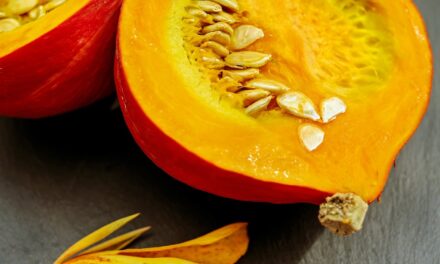Introduction: Ayurvedic Medicine for Acid Reflux
Acid reflux, also known as GERD (Gastroesophageal Reflux Disease), is a common digestive disorder characterized by the backflow of stomach acid into the esophagus. This condition can lead to discomfort, heartburn, bloating, and in severe cases, damage to the esophagus. While modern medicine offers solutions, Ayurvedic medicine provides natural and holistic remedies to treat acid reflux effectively.
Ayurveda, the ancient Indian system of medicine, views acid reflux as a disorder caused by an imbalance in the “Pitta” dosha, which governs heat and metabolism in the body. Ayurvedic treatments aim to balance Pitta through dietary modifications, lifestyle changes, and natural remedies.
In this article, we will explore the most effective Ayurvedic medicines and treatments for acid reflux, how they work, and how to incorporate them into your daily life to promote long-term digestive health.
What Causes Acid Reflux According to Ayurveda?
In Ayurveda, acid reflux is called “Amlapitta,” which means the production of excessive acid (Amla) due to an aggravated Pitta dosha. Pitta governs digestion, body temperature, and metabolism. When Pitta becomes unbalanced due to factors such as improper diet, stress, or unhealthy lifestyle habits, it leads to excessive heat and acidity in the stomach, causing acid reflux.
Common Causes of Pitta Imbalance:
- Spicy, sour, and oily foods: These foods increase heat in the body and can aggravate Pitta.
- Irregular eating habits: Skipping meals, eating at odd hours, or overeating can disturb digestion.
- High stress levels: Mental stress, anger, and frustration can increase Pitta.
- Alcohol and caffeine consumption: These substances stimulate acid production in the stomach.
- Hot weather: Excess heat from the environment can also aggravate Pitta.
Symptoms of Acid Reflux
- Burning sensation in the chest (heartburn)
- Sour taste in the mouth
- Bloating and gas
- Difficulty swallowing
- Persistent cough or sore throat
- Regurgitation of food or acid
- Nausea or vomiting
If untreated, acid reflux can lead to serious complications like esophagitis or Barrett’s esophagus.
Ayurvedic Principles for Treating Acid Reflux
In Ayurveda, the treatment of acid reflux focuses on cooling and pacifying the aggravated Pitta dosha. This can be achieved through a combination of Ayurvedic medicines, dietary changes, and lifestyle modifications. The primary approach involves:
- Balancing Pitta: Consuming cooling foods and herbs that reduce excess heat in the body.
- Supporting digestion: Strengthening the digestive fire (Agni) without causing excessive heat.
- Cleansing and detoxification: Removing toxins (Ama) that may accumulate due to poor digestion.
Top Ayurvedic Medicines for Acid Reflux
Here are some of the most effective Ayurvedic remedies for acid reflux. These herbs and formulations help soothe the digestive system and reduce acidity naturally.
1. Amla (Indian Gooseberry)
Amla is a potent herb that balances Pitta and supports digestion. It is rich in Vitamin C, which helps neutralize stomach acid and reduce inflammation in the esophagus.
How to Use:
- Consume 1 teaspoon of Amla powder mixed with honey before meals.
- Drink Amla juice in the morning on an empty stomach for best results.
2. Licorice Root (Yashtimadhu)
Licorice root has soothing and anti-inflammatory properties that protect the stomach lining from excess acid. It also helps reduce irritation in the esophagus caused by acid reflux.
How to Use:
- Boil 1 teaspoon of licorice root powder in water and drink it after meals.
- Alternatively, chew a small piece of licorice root to reduce heartburn symptoms.
3. Triphala
Triphala is an Ayurvedic blend of three fruits—Amla, Haritaki, and Bibhitaki. It is known for its ability to improve digestion, cleanse the digestive tract, and reduce acidity.
How to Use:
- Take 1 teaspoon of Triphala powder with warm water before bed to prevent acid reflux during sleep.
4. Coriander Seeds (Dhania)
Coriander seeds have cooling properties and are effective in reducing acidity. They help balance Pitta and soothe the digestive system.
How to Use:
- Soak 1 teaspoon of coriander seeds in water overnight. Strain and drink the water in the morning.
- Coriander seed tea can also be consumed after meals to prevent acid reflux.
5. Fennel Seeds (Saunf)
Fennel seeds are widely known for their digestive benefits. They are cooling in nature and help relieve bloating, gas, and acidity.
How to Use:
- Chew 1 teaspoon of fennel seeds after meals to aid digestion and prevent heartburn.
- Fennel tea can also be consumed for quick relief from acid reflux symptoms.
6. Ginger (Adrak)
While ginger is known for its heating properties, in small amounts, it can actually support digestion and reduce nausea caused by acid reflux. However, it should be used cautiously in individuals with severe Pitta imbalance.
How to Use:
- Add a small piece of ginger to hot water and drink as a tea.
- Ginger powder mixed with honey can also be consumed before meals to stimulate digestion.
7. Aloe Vera Juice
Aloe vera is known for its cooling and anti-inflammatory effects, making it a great remedy for soothing the esophagus and reducing stomach acid.
How to Use:
- Drink 2 tablespoons of fresh aloe vera juice on an empty stomach in the morning.
Ayurvedic Dietary Guidelines for Acid Reflux
In addition to Ayurvedic medicines, it is essential to follow a Pitta-pacifying diet to prevent and manage acid reflux. Here are some dietary guidelines to consider:
Foods to Avoid:
- Spicy, sour, and salty foods
- Fried and greasy foods
- Citrus fruits like oranges, lemons, and tomatoes
- Fermented foods like vinegar and pickles
- Alcohol, caffeine, and carbonated beverages
- Processed and junk foods
Foods to Include:
- Cooling vegetables like cucumber, leafy greens, and zucchini
- Fruits like melons, bananas, and papayas
- Whole grains such as barley, oats, and rice
- Dairy products like milk and ghee (in moderation)
- Coconut water and buttermilk for hydration
- Mild spices like coriander, cumin, and fennel
Lifestyle Tips to Prevent Acid Reflux
- Eat Smaller Meals: Avoid overeating by consuming smaller, more frequent meals throughout the day.
- Avoid Eating Late at Night: Finish your last meal at least 2-3 hours before bedtime to prevent nighttime reflux.
- Manage Stress: Practice yoga, meditation, and deep breathing exercises to calm the mind and reduce stress, which can trigger acid reflux.
- Stay Hydrated: Drink plenty of water throughout the day to dilute stomach acid.
- Maintain a Healthy Weight: Excess weight can put pressure on the stomach, leading to acid reflux.
- Sleep with Your Head Elevated: Elevate the head of your bed by 6-8 inches to prevent acid from flowing back into the esophagus while sleeping.
- Avoid Tight Clothing: Wear loose-fitting clothes to prevent pressure on the stomach.
Conclusion: Ayurvedic Medicine for Acid Reflux as a Holistic Solution
Ayurvedic medicine for acid reflux offers a holistic approach to managing this condition by addressing its root cause—imbalanced Pitta dosha. By incorporating cooling herbs, making dietary adjustments, and adopting lifestyle changes, you can effectively manage acid reflux and improve your overall digestive health.
Always remember, Ayurveda is about balance, and following these remedies with consistency will not only relieve symptoms but also prevent future occurrences of acid reflux. For chronic or severe cases, it’s important to consult an Ayurvedic practitioner who can provide personalized treatment and guidance.
By embracing the wisdom of Ayurveda, you can restore balance to your body, reduce acidity, and enjoy a healthier, more comfortable life.





